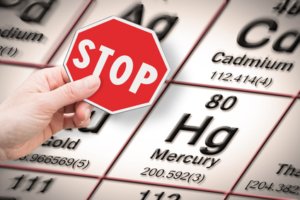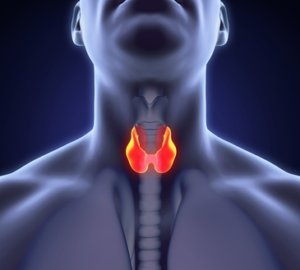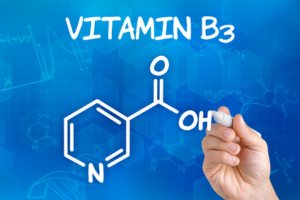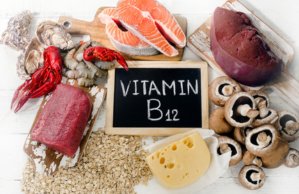afterLoad (456.27KB) (1.65ms)
afterInitialise (1.27MB) (42.79ms)
afterRoute (856.63KB) (19.97ms)
beforeRenderComponent com_content (35.67KB) (1.48ms)
Before Access::preloadComponents (all components) (117.8KB) (4.91ms)
After Access::preloadComponents (all components) (98.44KB) (616μs)
Before Access::getAssetRules (id:8 name:com_content) (1.13KB) (16μs)
After Access::getAssetRules (id:8 name:com_content) (7.05KB) (37μs)
afterRenderComponent com_content (1.3MB) (304ms)
afterDispatch (17.53KB) (5.68ms)
beforeRenderRawModule mod_articles_category (READ MORE...) (383.51KB) (11.35ms)
afterRenderRawModule mod_articles_category (READ MORE...) (83.77KB) (164ms)
beforeRenderRawModule mod_tags_popular (Search) (4.81KB) (28μs)
afterRenderRawModule mod_tags_popular (Search) (10.18KB) (56.94ms)
beforeRenderRawModule mod_custom (Remember to download Heart Healthy Seniors) (816B) (30μs)
afterRenderRawModule mod_custom (Remember to download Heart Healthy Seniors) (4.22KB) (3.23ms)
beforeRenderRawModule mod_custom (Get additionel and more detailed knowledge ) (752B) (16μs)
afterRenderRawModule mod_custom (Get additionel and more detailed knowledge ) (1.67KB) (28μs)
beforeRenderRawModule mod_custom (BOOST YOUR IMMUNE DEFENSE) (608B) (10μs)
afterRenderRawModule mod_custom (BOOST YOUR IMMUNE DEFENSE) (928B) (20μs)
beforeRenderRawModule mod_custom (Are you taking supplements) (736B) (8μs)
afterRenderRawModule mod_custom (Are you taking supplements) (1.03KB) (18μs)
beforeRenderRawModule mod_custom (Antiaging) (720B) (8μs)
afterRenderRawModule mod_custom (Antiaging) (1.02KB) (16μs)
beforeRenderRawModule mod_custom (Exercise) (720B) (8μs)
afterRenderRawModule mod_custom (Exercise) (1.02KB) (16μs)
beforeRenderRawModule mod_custom (Check this before you buy a Q10 product) (752B) (8μs)
afterRenderRawModule mod_custom (Check this before you buy a Q10 product) (944B) (17μs)
beforeRenderRawModule mod_custom (Chronic fatigue tied Alan to his bed but Q10 capsules saved him:) (260.6KB) (8.11ms)
afterRenderRawModule mod_custom (Chronic fatigue tied Alan to his bed but Q10 capsules saved him:) (960B) (37μs)
beforeRenderModule mod_custom (Chronic fatigue tied Alan to his bed but Q10 capsules saved him:) (768B) (4μs)
afterRenderModule mod_custom (Chronic fatigue tied Alan to his bed but Q10 capsules saved him:) (1.3KB) (45μs)
beforeRenderRawModule mod_custom (Cholesterol-lowering without side effects:) (368B) (10μs)
afterRenderRawModule mod_custom (Cholesterol-lowering without side effects:) (2.19KB) (21μs)
beforeRenderModule mod_custom (Cholesterol-lowering without side effects:) (752B) (2μs)
afterRenderModule mod_custom (Cholesterol-lowering without side effects:) (1.28KB) (26μs)
beforeRenderModule mod_articles_category (READ MORE...) (21.32KB) (282μs)
afterRenderModule mod_articles_category (READ MORE...) (1.25KB) (33μs)
beforeRenderModule mod_tags_popular (Search) (5.17KB) (11μs)
afterRenderModule mod_tags_popular (Search) (1.27KB) (3.14ms)
beforeRenderModule mod_custom (Remember to download Heart Healthy Seniors) (1.17KB) (20μs)
afterRenderModule mod_custom (Remember to download Heart Healthy Seniors) (1.3KB) (37μs)
beforeRenderModule mod_custom (Get additionel and more detailed knowledge ) (368B) (11μs)
afterRenderModule mod_custom (Get additionel and more detailed knowledge ) (1.3KB) (21μs)
beforeRenderModule mod_custom (BOOST YOUR IMMUNE DEFENSE) (224B) (9μs)
afterRenderModule mod_custom (BOOST YOUR IMMUNE DEFENSE) (1.28KB) (19μs)
beforeRenderModule mod_custom (Are you taking supplements) (352B) (8μs)
afterRenderModule mod_custom (Are you taking supplements) (1.28KB) (19μs)
beforeRenderModule mod_custom (Antiaging) (336B) (8μs)
afterRenderModule mod_custom (Antiaging) (1.27KB) (18μs)
beforeRenderModule mod_custom (Exercise) (336B) (7μs)
afterRenderModule mod_custom (Exercise) (1.25KB) (18μs)
beforeRenderModule mod_custom (Check this before you buy a Q10 product) (352B) (8μs)
afterRenderModule mod_custom (Check this before you buy a Q10 product) (1.28KB) (18μs)
beforeRenderRawModule mod_menu (Main menu-US) (20.94KB) (510μs)
afterRenderRawModule mod_menu (Main menu-US) (152.04KB) (6.03ms)
beforeRenderModule mod_menu (Main menu-US) (720B) (4μs)
afterRenderModule mod_menu (Main menu-US) (4.36KB) (48μs)
beforeRenderRawModule mod_languages (Sprogskift) (3.44KB) (17μs)
afterRenderRawModule mod_languages (Sprogskift) (26.8KB) (6.53ms)
beforeRenderModule mod_languages (Sprogskift) (720B) (5μs)
afterRenderModule mod_languages (Sprogskift) (5.31KB) (19μs)
beforeRenderRawModule mod_finder () (6.34KB) (11μs)
afterRenderRawModule mod_finder () (155.66KB) (5.04ms)
beforeRenderModule mod_finder () (704B) (5μs)
afterRenderModule mod_finder () (5.79KB) (32μs)
beforeRenderRawModule mod_custom () (6.62KB) (136μs)
afterRenderRawModule mod_custom () (26.51KB) (2.88ms)
beforeRenderModule mod_custom () (704B) (6μs)
afterRenderModule mod_custom () (1.23KB) (46μs)
beforeRenderRawModule mod_menu (Main menu-US) (5.07KB) (93μs)
afterRenderRawModule mod_menu (Main menu-US) (5.8KB) (2.86ms)
beforeRenderModule mod_menu (Main menu-US) (720B) (5μs)
afterRenderModule mod_menu (Main menu-US) (1.25KB) (101μs)
beforeRenderRawModule mod_languages (Sprogskift Mobil) (912B) (18μs)
afterRenderRawModule mod_languages (Sprogskift Mobil) (3.89KB) (1.58ms)
beforeRenderModule mod_languages (Sprogskift Mobil) (720B) (5μs)
afterRenderModule mod_languages (Sprogskift Mobil) (1.27KB) (40μs)
beforeRenderRawModule mod_finder () (2.3KB) (11μs)
afterRenderRawModule mod_finder () (6.29KB) (1.35ms)
beforeRenderModule mod_finder () (704B) (5μs)
afterRenderModule mod_finder () (1.23KB) (43μs)
beforeRenderRawModule mod_custom () (8.66KB) (163μs)
afterRenderRawModule mod_custom () (904B) (259μs)
beforeRenderModule mod_custom () (704B) (5μs)
afterRenderModule mod_custom () (2.43KB) (30μs)
beforeRenderRawModule mod_custom () (688B) (99μs)
afterRenderRawModule mod_custom () (896B) (706μs)
beforeRenderModule mod_custom () (704B) (5μs)
afterRenderModule mod_custom () (2.71KB) (766μs)
afterRender (315.96KB) (17.46ms)
| 1 x afterRenderComponent com_content (1.3MB) (44.75%) | 303.65ms |
| 1 x afterRenderRawModule mod_articles_category (READ MORE...) (83.77KB) (24.21%) | 164.31ms |
| 1 x afterRenderRawModule mod_tags_popular (Search) (10.18KB) (8.39%) | 56.94ms |
| 1 x afterInitialise (1.27MB) (6.31%) | 42.79ms |
| 1 x afterRoute (856.63KB) (2.94%) | 19.97ms |
| 1 x afterRender (315.96KB) (2.57%) | 17.46ms |
| 1 x beforeRenderRawModule mod_articles_category (READ MORE...) (383.51KB) (1.67%) | 11.35ms |
| 1 x beforeRenderRawModule mod_custom (Chronic fatigue tied Alan to his bed but Q10 capsules saved him:) (260.6KB) (1.2%) | 8.11ms |
| 1 x afterRenderRawModule mod_languages (Sprogskift) (26.8KB) (0.96%) | 6.53ms |
| 1 x afterRenderRawModule mod_menu (Main menu-US) (152.04KB) (0.89%) | 6.03ms |
| 1 x afterDispatch (17.53KB) (0.84%) | 5.68ms |
| 1 x afterRenderRawModule mod_finder () (155.66KB) (0.74%) | 5.04ms |
| 1 x Before Access::preloadComponents (all components) (117.8KB) (0.72%) | 4.91ms |
| 1 x afterRenderRawModule mod_custom (Remember to download Heart Healthy Seniors) (4.22KB) (0.48%) | 3.23ms |
| 1 x afterRenderModule mod_tags_popular (Search) (1.27KB) (0.46%) | 3.14ms |
| 1 x afterRenderRawModule mod_custom () (26.51KB) (0.43%) | 2.88ms |
| 1 x afterRenderRawModule mod_menu (Main menu-US) (5.8KB) (0.42%) | 2.86ms |
| 1 x afterLoad (456.27KB) (0.24%) | 1.65ms |
| 1 x afterRenderRawModule mod_languages (Sprogskift Mobil) (3.89KB) (0.23%) | 1.58ms |
| 1 x beforeRenderComponent com_content (35.67KB) (0.22%) | 1.48ms |
| 1 x afterRenderRawModule mod_finder () (6.29KB) (0.2%) | 1.35ms |
| 1 x afterRenderModule mod_custom () (2.71KB) (0.11%) | 766μs |
| 1 x afterRenderRawModule mod_custom () (896B) (0.1%) | 706μs |
| 1 x After Access::preloadComponents (all components) (98.44KB) (0.09%) | 616μs |
| 1 x beforeRenderRawModule mod_menu (Main menu-US) (20.94KB) (0.08%) | 510μs |
| 1 x beforeRenderModule mod_articles_category (READ MORE...) (21.32KB) (0.04%) | 282μs |
| 1 x afterRenderRawModule mod_custom () (904B) (0.04%) | 259μs |
| 1 x beforeRenderRawModule mod_custom () (8.66KB) (0.02%) | 163μs |
| 1 x beforeRenderRawModule mod_custom () (6.62KB) (0.02%) | 136μs |
| 1 x afterRenderModule mod_menu (Main menu-US) (1.25KB) (0.01%) | 101μs |
| 1 x beforeRenderRawModule mod_custom () (688B) (0.01%) | 99μs |
| 1 x beforeRenderRawModule mod_menu (Main menu-US) (5.07KB) (0.01%) | 93μs |
| 1 x afterRenderModule mod_menu (Main menu-US) (4.36KB) (0.01%) | 48μs |
| 1 x afterRenderModule mod_custom () (1.23KB) (0.01%) | 46μs |
| 1 x afterRenderModule mod_custom (Chronic fatigue tied Alan to his bed but Q10 capsules saved him:) (1.3KB) (0.01%) | 45μs |
| 1 x afterRenderModule mod_finder () (1.23KB) (0.01%) | 43μs |
| 1 x afterRenderModule mod_languages (Sprogskift Mobil) (1.27KB) (0.01%) | 40μs |
| 1 x After Access::getAssetRules (id:8 name:com_content) (7.05KB) (0.01%) | 37μs |
| 1 x afterRenderRawModule mod_custom (Chronic fatigue tied Alan to his bed but Q10 capsules saved him:) (960B) (0.01%) | 37μs |
| 1 x afterRenderModule mod_custom (Remember to download Heart Healthy Seniors) (1.3KB) (0.01%) | 37μs |
| 1 x afterRenderModule mod_articles_category (READ MORE...) (1.25KB) (0%) | 33μs |
| 1 x afterRenderModule mod_finder () (5.79KB) (0%) | 32μs |
| 1 x beforeRenderRawModule mod_custom (Remember to download Heart Healthy Seniors) (816B) (0%) | 30μs |
| 1 x afterRenderModule mod_custom () (2.43KB) (0%) | 30μs |
| 1 x beforeRenderRawModule mod_tags_popular (Search) (4.81KB) (0%) | 28μs |
| 1 x afterRenderRawModule mod_custom (Get additionel and more detailed knowledge ) (1.67KB) (0%) | 28μs |
| 1 x afterRenderModule mod_custom (Cholesterol-lowering without side effects:) (1.28KB) (0%) | 26μs |
| 1 x afterRenderRawModule mod_custom (Cholesterol-lowering without side effects:) (2.19KB) (0%) | 21μs |
| 1 x afterRenderModule mod_custom (Get additionel and more detailed knowledge ) (1.3KB) (0%) | 21μs |
| 1 x afterRenderRawModule mod_custom (BOOST YOUR IMMUNE DEFENSE) (928B) (0%) | 20μs |
| 1 x beforeRenderModule mod_custom (Remember to download Heart Healthy Seniors) (1.17KB) (0%) | 20μs |
| 1 x afterRenderModule mod_custom (BOOST YOUR IMMUNE DEFENSE) (1.28KB) (0%) | 19μs |
| 1 x afterRenderModule mod_custom (Are you taking supplements) (1.28KB) (0%) | 19μs |
| 1 x afterRenderModule mod_languages (Sprogskift) (5.31KB) (0%) | 19μs |
| 1 x afterRenderRawModule mod_custom (Are you taking supplements) (1.03KB) (0%) | 18μs |
| 1 x afterRenderModule mod_custom (Antiaging) (1.27KB) (0%) | 18μs |
| 1 x afterRenderModule mod_custom (Exercise) (1.25KB) (0%) | 18μs |
| 1 x afterRenderModule mod_custom (Check this before you buy a Q10 product) (1.28KB) (0%) | 18μs |
| 1 x beforeRenderRawModule mod_languages (Sprogskift Mobil) (912B) (0%) | 18μs |
| 1 x afterRenderRawModule mod_custom (Check this before you buy a Q10 product) (944B) (0%) | 17μs |
| 1 x beforeRenderRawModule mod_languages (Sprogskift) (3.44KB) (0%) | 17μs |
| 1 x Before Access::getAssetRules (id:8 name:com_content) (1.13KB) (0%) | 16μs |
| 3 x beforeRenderModule mod_custom () (704B) (0%) | 16μs |
| 1 x beforeRenderRawModule mod_custom (Get additionel and more detailed knowledge ) (752B) (0%) | 16μs |
| 1 x afterRenderRawModule mod_custom (Antiaging) (1.02KB) (0%) | 16μs |
| 1 x afterRenderRawModule mod_custom (Exercise) (1.02KB) (0%) | 16μs |
| 1 x beforeRenderModule mod_tags_popular (Search) (5.17KB) (0%) | 11μs |
| 1 x beforeRenderModule mod_custom (Get additionel and more detailed knowledge ) (368B) (0%) | 11μs |
| 1 x beforeRenderRawModule mod_finder () (6.34KB) (0%) | 11μs |
| 1 x beforeRenderRawModule mod_finder () (2.3KB) (0%) | 11μs |
| 1 x beforeRenderRawModule mod_custom (BOOST YOUR IMMUNE DEFENSE) (608B) (0%) | 10μs |
| 1 x beforeRenderRawModule mod_custom (Cholesterol-lowering without side effects:) (368B) (0%) | 10μs |
| 2 x beforeRenderModule mod_finder () (704B) (0%) | 10μs |
| 1 x beforeRenderModule mod_custom (BOOST YOUR IMMUNE DEFENSE) (224B) (0%) | 9μs |
| 2 x beforeRenderModule mod_menu (Main menu-US) (720B) (0%) | 9μs |
| 1 x beforeRenderRawModule mod_custom (Exercise) (720B) (0%) | 8μs |
| 1 x beforeRenderRawModule mod_custom (Check this before you buy a Q10 product) (752B) (0%) | 8μs |
| 1 x beforeRenderRawModule mod_custom (Are you taking supplements) (736B) (0%) | 8μs |
| 1 x beforeRenderRawModule mod_custom (Antiaging) (720B) (0%) | 8μs |
| 1 x beforeRenderModule mod_custom (Are you taking supplements) (352B) (0%) | 8μs |
| 1 x beforeRenderModule mod_custom (Antiaging) (336B) (0%) | 8μs |
| 1 x beforeRenderModule mod_custom (Check this before you buy a Q10 product) (352B) (0%) | 8μs |
| 1 x beforeRenderModule mod_custom (Exercise) (336B) (0%) | 7μs |
| 1 x beforeRenderModule mod_languages (Sprogskift) (720B) (0%) | 5μs |
| 1 x beforeRenderModule mod_languages (Sprogskift Mobil) (720B) (0%) | 5μs |
| 1 x beforeRenderModule mod_custom (Chronic fatigue tied Alan to his bed but Q10 capsules saved him:) (768B) (0%) | 4μs |
| 1 x beforeRenderModule mod_custom (Cholesterol-lowering without side effects:) (752B) (0%) | 2μs |
 The most harmful heavy metals are mercury, cadmium, lead, nickel, and cobber, but aluminum, fluoride, iron, and calcium can also be toxic. Poisoning with heavy metals and minerals blocks other minerals such as selenium, iodine, magnesium, and zinc, all of which support numerous essential enzyme processes. At the same time, if you lack these important minerals, heavy metals are able to cause unhindered damage and increase your risk of impaired immunity, impaired fertility, autoimmune diseases, thyroid diseases, brain damage, neurological diseases, depression, hypersensitivity, etc. Chronic heavy metal toxicity is an overlooked problem, but in this article, you can read more about the subject and find out how to deal with it.
The most harmful heavy metals are mercury, cadmium, lead, nickel, and cobber, but aluminum, fluoride, iron, and calcium can also be toxic. Poisoning with heavy metals and minerals blocks other minerals such as selenium, iodine, magnesium, and zinc, all of which support numerous essential enzyme processes. At the same time, if you lack these important minerals, heavy metals are able to cause unhindered damage and increase your risk of impaired immunity, impaired fertility, autoimmune diseases, thyroid diseases, brain damage, neurological diseases, depression, hypersensitivity, etc. Chronic heavy metal toxicity is an overlooked problem, but in this article, you can read more about the subject and find out how to deal with it.







 An estimated 500,000 Danes suffer from some kind of thyroid disorder, the most common of which is Hashimoto’s disease, which slows down your metabolism. The formation and activation of thyroid hormones depend on iodine and selenium, and it is essential that the two nutrients are properly balanced. Having too little or too much iodine increases your risk of Hashimoto’s disease, and the same is the case with selenium, a nutrient that many people lack.
An estimated 500,000 Danes suffer from some kind of thyroid disorder, the most common of which is Hashimoto’s disease, which slows down your metabolism. The formation and activation of thyroid hormones depend on iodine and selenium, and it is essential that the two nutrients are properly balanced. Having too little or too much iodine increases your risk of Hashimoto’s disease, and the same is the case with selenium, a nutrient that many people lack. Pregnant women are advised not to smoke, as this may harm the unborn baby. However, not all pregnant smokers are able to quit their habit. A new American study shows that vitamin C supplementation can reduce the risk to the baby’s lungs and improve the baby’s breathing.
Pregnant women are advised not to smoke, as this may harm the unborn baby. However, not all pregnant smokers are able to quit their habit. A new American study shows that vitamin C supplementation can reduce the risk to the baby’s lungs and improve the baby’s breathing. Alzheimer’s disease causes the brain to malfunction and is therefore the leading cause of dementia. According to a new American study, a particular form of vitamin B3 may help prevent neurological damage and therefore has a positive impact on Alzheimer’s patients. As part of the prevention of this disease, it is also important to make sure to get plenty of all the other nutrients.
Alzheimer’s disease causes the brain to malfunction and is therefore the leading cause of dementia. According to a new American study, a particular form of vitamin B3 may help prevent neurological damage and therefore has a positive impact on Alzheimer’s patients. As part of the prevention of this disease, it is also important to make sure to get plenty of all the other nutrients. Patients who have been diagnosed with Parkinson’s disease and who have low levels of vitamin B12 develop their disease faster than those with higher levels of the vitamin, according to a new study. For that reason, the scientists recommend vitamin B12 supplements as a way of delaying the onset of the disease. Earlier studies even show that vitamin B3 and Q10 have a positive influence on the ailment.
Patients who have been diagnosed with Parkinson’s disease and who have low levels of vitamin B12 develop their disease faster than those with higher levels of the vitamin, according to a new study. For that reason, the scientists recommend vitamin B12 supplements as a way of delaying the onset of the disease. Earlier studies even show that vitamin B3 and Q10 have a positive influence on the ailment. Vitamin B2, also know as riboflavin, is found in different foods and in supplements containing multivitamins and strong B-vitamins. Most people are unaware that the vitamin has a host of important functions, which are especially relevant for energy levels, the nervous system, the psyche, the body’s iron metabolism, vision, skin, and lips. A study that is published in Neurology also shows that taking large amounts of vitamin B2 can help prevent migraine headaches. It appears that vitamin B2 deficiency is a common problem because of stress, ageing processes, unhealthy diets, the use of birth control pills, medicine, and certain other causes. In the following, you can read more about this exciting yet overlooked vitamin and find out how best to utilize vitamin B2 from your diet or from supplements.
Vitamin B2, also know as riboflavin, is found in different foods and in supplements containing multivitamins and strong B-vitamins. Most people are unaware that the vitamin has a host of important functions, which are especially relevant for energy levels, the nervous system, the psyche, the body’s iron metabolism, vision, skin, and lips. A study that is published in Neurology also shows that taking large amounts of vitamin B2 can help prevent migraine headaches. It appears that vitamin B2 deficiency is a common problem because of stress, ageing processes, unhealthy diets, the use of birth control pills, medicine, and certain other causes. In the following, you can read more about this exciting yet overlooked vitamin and find out how best to utilize vitamin B2 from your diet or from supplements. Fluid depletion (or volume depletion) lowers your performance and may be life-threatening in worst case. However, it can be every bit as dangerous to drink too much water. In fact, there have been several deaths as a result of this among athletes. Another thing is that one should not just focus on water. When engaging in strenuous sport, there is a very delicate balance between fluids and minerals. Many sports beverages contain too much sugar and caffeine that often do more harm than good, so the question is how much liquid you need when engaging in the different types of sport. Read more about the subject in the following.
Fluid depletion (or volume depletion) lowers your performance and may be life-threatening in worst case. However, it can be every bit as dangerous to drink too much water. In fact, there have been several deaths as a result of this among athletes. Another thing is that one should not just focus on water. When engaging in strenuous sport, there is a very delicate balance between fluids and minerals. Many sports beverages contain too much sugar and caffeine that often do more harm than good, so the question is how much liquid you need when engaging in the different types of sport. Read more about the subject in the following. Stress is a large problem for many people. It is believed that the majority of people who consult their physician do it because of stress-related problems. Many people try to relieve their stress with sweets, coffee, alcohol, painkillers, and sleeping medication just to get through the day. However, in the long run, this can turn into a vicious cycle that increases your risk of disease and faster ageing. There are dozens of books about stress that can be useful for solving problems and slowing down your pace, but don’t forget that stress is also physiological. It is a condition that deteriorates tissues, burdens the body with free radicals and increases your need for B-vitamins, vitamin C, magnesium, selenium and coenzyme Q10. If you make sure to get the necessary essential nutrients before it is too late, you can cope with more.
Stress is a large problem for many people. It is believed that the majority of people who consult their physician do it because of stress-related problems. Many people try to relieve their stress with sweets, coffee, alcohol, painkillers, and sleeping medication just to get through the day. However, in the long run, this can turn into a vicious cycle that increases your risk of disease and faster ageing. There are dozens of books about stress that can be useful for solving problems and slowing down your pace, but don’t forget that stress is also physiological. It is a condition that deteriorates tissues, burdens the body with free radicals and increases your need for B-vitamins, vitamin C, magnesium, selenium and coenzyme Q10. If you make sure to get the necessary essential nutrients before it is too late, you can cope with more.
 "After about one week of taking the Q10 supplement I could feel a huge difference," says 23-year old Alan Piccini, who has been suffering from extreme fatigue and muscle aches ever since he was a child.
"After about one week of taking the Q10 supplement I could feel a huge difference," says 23-year old Alan Piccini, who has been suffering from extreme fatigue and muscle aches ever since he was a child. “Taking capsules with co-enzyme Q10 has freed me of the severe side effects of my cholesterol lowering medicine,” Mrs Franken explains.
“Taking capsules with co-enzyme Q10 has freed me of the severe side effects of my cholesterol lowering medicine,” Mrs Franken explains.